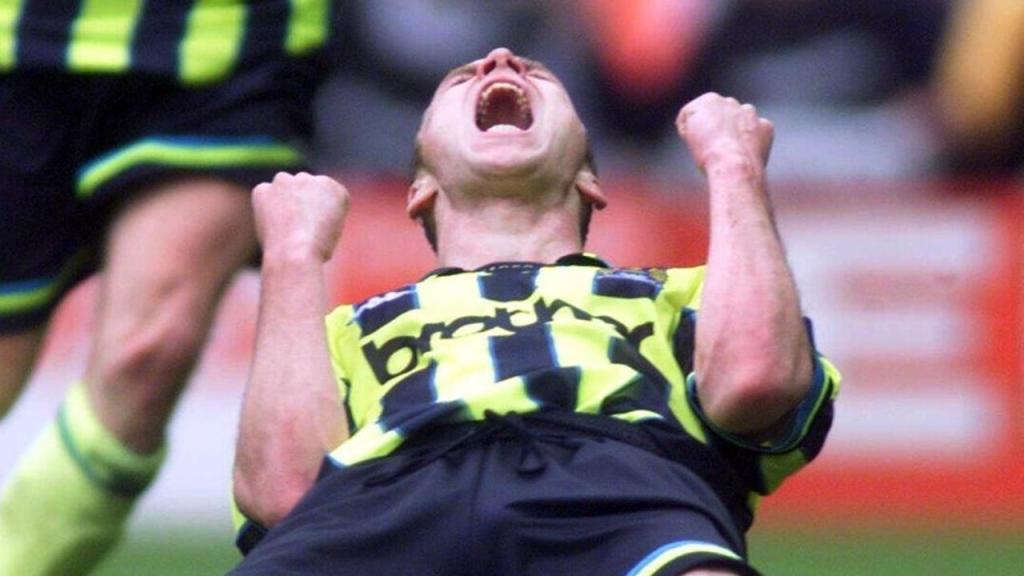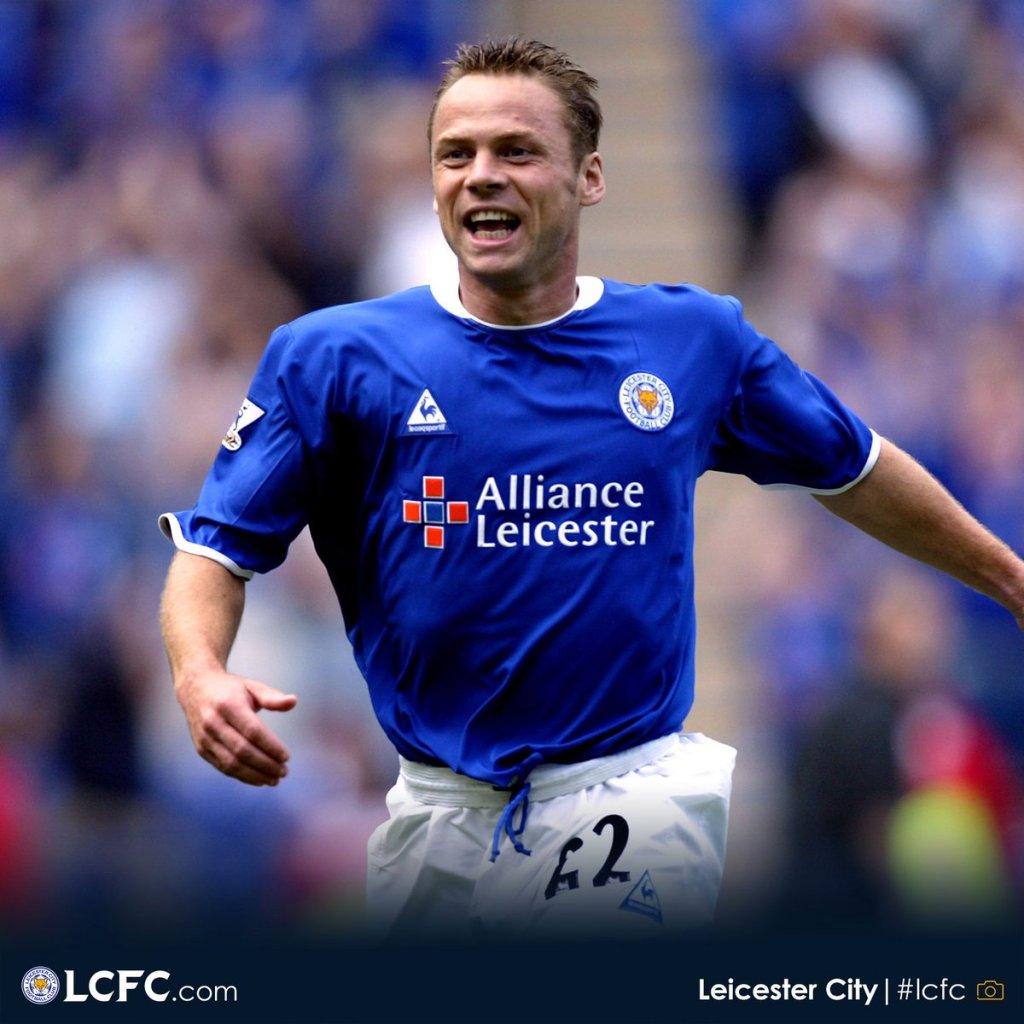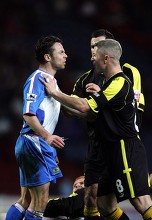Paul Dickov might not be the first Manchester City striker that comes to mind but he might just be one of the most important in their history.
Featuring in three different divisions for the club and scoring some important goals for the club means he should be remembered fondly by the fans. Alongside his workrate and determination he was always well liked by his teams fans and not so much by opposition players.
Dickov started his career at Arsenal, but struggled to force his way into the first team regularly, with the likes of Ian Wright in front of him in the pecking order. However, his record wasn’t too bad as he scored six times in just 24 appearances and he was part of the squad that won the Cup Winners Cup in 1994.
In 1996 the striker signed for Manchester City but his first season was a bit of a disaster as the club went through five managers, some of them liking the striker and others leaving him out completely as he contributed just five goals. Again, the following year was poor and despite finishing as the top scorer they were relegated from Divison One.

The 1998-99 season was when Dickov became a City hero, scoring 16 goals in total, including the 95th minute equaliser in the final of the playoffs against Gillingham which was later voted as City’s Greatest Ever Goal in 2005. The game went to penalties and they would go on to win the game. In the following campaign Man City gained back to back promotions but injuries limited his game time. He did score the fourth goal in a 4-1 win over Blackburn Rovers which clinched promotion.

The Premier League was tough for Dickov as he found himself on the bench a lot and only managed four goals in the league as they were relegated. Lack of first team opportunites led to him leaving for Leicester City in 2002 and at the end of the season he suffered yet another relegation. He and the club would bounce back immediately with the striker hitting a career high 20 goals. Despite 13 goals Leicester were relegated again and he left the club for Blackburn.
He stayed at Blackburn for two seasons, scoring 17 times before returning to Man City. His second spell was less spectacular than his first as he failed to find the back of the net and ended up being loaned to Crystal Palace and Blackpool. While there he was named Player of the Month and scored six times in 11 games in total.
At the end of his contract he resigned for Leicester, helping them to win League One in the process. After promotion he did not play much and was loaned out to Derby County and was released soon after. Leeds United signed him but he only managed one start for the club.
His final playing days were at Oldham were he was player manager.
The final word can go to the man himself, speaking about that Wembley goal, which if he didn’t score who knows where City would be. “I was a lucky little boy to score that goal.”




























